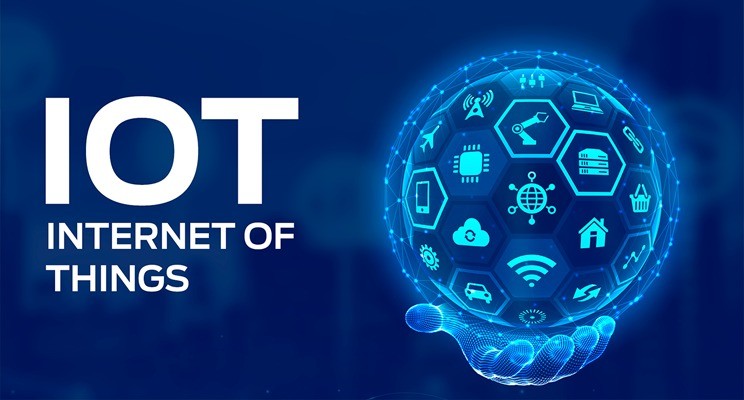Internet of Things world of technology has seen remarkable advancements over the years, and one of the most groundbreaking concepts that have emerged is the IoT. This interconnected network of devices has transformed how we interact with technology, revolutionizing industries and enhancing the efficiency of our daily lives.
Introduction:
The Internet of Things refers to the interconnection of various physical devices, vehicles, buildings, and everyday objects embedded with sensors, software, and network connectivity. These interconnected devices can collect and exchange data, enabling them to communicate, analyze information, and make informed decisions. This concept paved the way for a more connected and intelligent world.
How the Internet of Things Works?
At the core of IoT’s functionality is its ability to connect devices seamlessly. Devices with sensors gather data from their surroundings, then transmit it to a central platform through the Internet. This data is processed and analyzed, allowing devices to respond intelligently based on the information received. For instance, a smart thermostat can adjust the temperature based on user preferences and environmental conditions.
Critical Components of the Internet of Things Ecosystem
The IoT ecosystem consists of many components:
Retail:
IoT devices enable retailers to track inventory, personalized shopping experiences, and optimize supply chains.
Healthcare:
IoT-enabled medical devices monitor patients’ health remotely and provide real-time data to healthcare professionals.
Agriculture:
Farmers use IoT sensors to monitor soil conditions, weather patterns, and crop health, optimizing yields.
Connectivity:
IoT devices use communication protocols like Wi-Fi, Bluetooth, cellular networks, and satellite connections to transmit data
User Interface:
Users interact with IoT devices through intuitive interfaces like mobile apps or web dashboards.
Internet of Things Applications Across Industries
The impact of IoT extends across numerous industries:
Transportation:
Intelligent transportation systems enhance traffic management and vehicle maintenance, enabling autonomous driving.
Data Processing:
Collected data is sent to cloud-based servers or edge computing devices and processed and analyzed.
Devices and Sensors:
These are the physical objects that collect data from their environment. Examples include wearable fitness trackers, smart appliances, and industrial machinery..
Impact on Daily Life: Smart Homes and Beyond
One of the most notable impacts of IoT is in our homes. Smart thermostats, lights, security cameras, and voice assistants have transformed traditional houses into smart homes. These devices provide comfort, energy efficiency, and improved security.
Challenges with Security and Privacy in the IoT:
IoT has many advantages, but it also gives rise to privacy and security issues. With devices collecting sensitive data, ensuring robust cybersecurity measures is crucial to prevent data breaches and unauthorized access.
The Future of the Internet of Things:
Evolving Beyond Connectivity
The future of IoT extends far beyond mere connectivity. While connecting devices remains a crucial foundation, the focus will shift toward creating a seamless, intuitive, and context-aware user experience. IoT devices will communicate with each other intelligently, adapting to user preferences and environmental cues to enhance efficiency and convenience.
Smart Cities: Where IoT Shapes Urban Living
The concept of smart cities is taking shape, powered by IoT’s transformative capabilities. Urban environments will become more efficient, sustainable, and responsive to citizens’ needs. IoT will optimize traffic flow, energy consumption, waste management, and public services, creating cities that are interconnected ecosystems designed for a better quality of life.
Overcoming Challenges: Security and Interoperability
As IoT proliferates, addressing security and interoperability challenges becomes paramount. Protecting sensitive data and ensuring secure communication between devices are crucial priorities. Standardization efforts will ensure compatibility between diverse IoT ecosystems, enabling seamless interaction and integration.
Healthcare Revolution: IoT’s Impact on Medical Services
IoT revolutionizes healthcare by enabling remote patient monitoring, predictive diagnostics, and personalized treatment plans. Wearable devices and connected medical equipment will empower patients to take charge of their health while providing healthcare professionals with real-time insights. This revolution will lead to more proactive and efficient healthcare delivery.
AI and IoT Integration: Unleashing Unprecedented Potential
Integrating artificial intelligence (AI) and IoT is a game-changer that will unlock new possibilities. AI-driven insights enable IoT devices to analyze complex data patterns in real-time, leading to more intelligent decision-making and personalized user experiences. This synergy will result in self-learning systems that anticipate user needs and offer tailored solutions.
Transforming Industries: IoT in Manufacturing and Beyond
IoT’s transformative influence extends to industries like manufacturing, where it ushers in the era of Industry 4.0. Smart factories will utilize IoT-powered sensors to optimize production processes, predict maintenance needs, and ensure product quality. Beyond manufacturing, agriculture, transportation, and logistics sectors will leverage IoT to streamline operations and enhance productivity.
Data Insights: Harnessing the Power of IoT-generated Data
The sheer volume of data IoT devices generate holds immense potential for insights and innovation. Advanced data analytics tools will decipher patterns, trends, and consumer behaviors, empowering businesses to make informed decisions and develop targeted strategies. This data-driven approach will revolutionize marketing, product development, and customer experiences.
Conclusion:
The Internet of Things has ushered in a new connectivity and technological advancement era. IoT has transformed industries, homes, and how we interact with the world by seamlessly connecting devices and enabling them to communicate and make informed decisions. However, as we embrace this interconnected future, it’s crucial to address the security and privacy challenges that come with it.
FAQs:
Q1: How does IoT impact daily life?
It enhances daily life by introducing intelligent devices that offer convenience, energy efficiency, and improved security.
Q2: What exactly is the IoT?
It refers to the network of interconnected physical devices that can collect and exchange data through the Internet.
Q3: Are there security risks associated with IoT?
These devices can be vulnerable to security breaches if not adequately protected, raising concerns about data privacy.
Q4: What industries benefit the most from the Internet of Things?
Industries such as healthcare, agriculture, transportation, and retail have greatly benefited from IoT applications.

